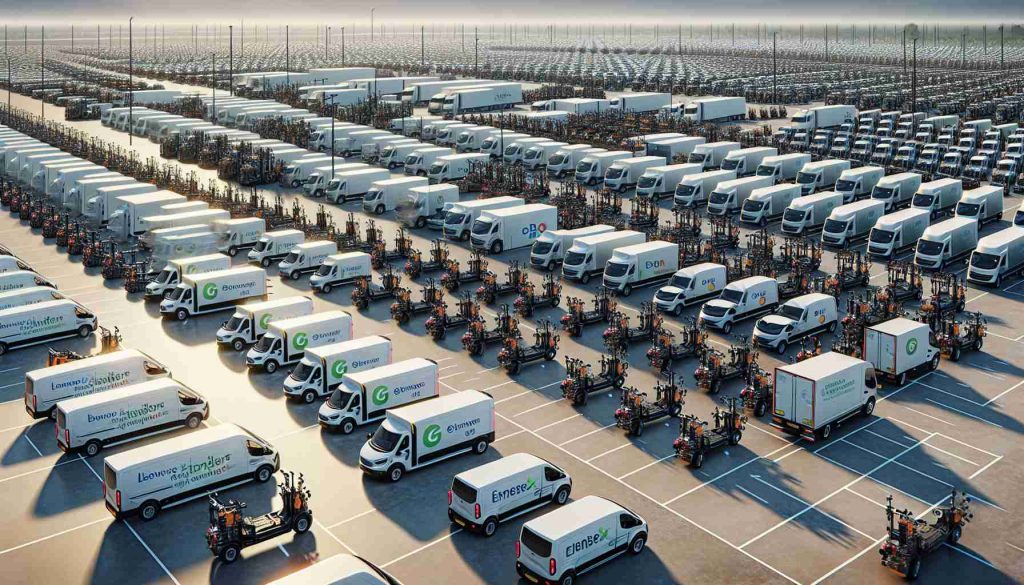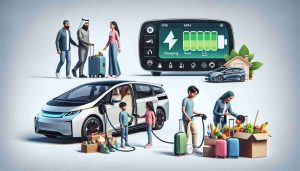BT Group to Supercharge UK’s Green Transition! 8,000 Electric Vehicles Planned
5 min read
BT Group, a leading name in British telecom, is making waves in the electric vehicle (EV) sector. The company has unveiled an ambitious plan to expand its fleet by adding 3,500 electric vans and trucks within the next two years. This initiative will elevate its total electric vehicle count to an impressive 8,000, establishing BT Group as the holder of the largest electric vehicle fleet in the UK.
Operating over 27,000 vehicles, BT Group stands as one of the UK’s most extensive commercial fleets, regardless of vehicle type. On a mission towards sustainability, the company aims to reach net-zero carbon emissions by 2031, with plans to electrify virtually all its vehicles by 2028.
The new EVs will include a diverse range of models from top manufacturers like Ford, Stellantis, Toyota, and Renault. Company leaders are optimistic that this strategic move will enhance their efficiency as they work to expand their full fiber internet service to an additional 9 million homes and businesses by 2026.
In addition to striving for its own carbon neutrality, BT Group actively endorses the UK’s 2030 ban on internal combustion engine (ICE) vehicles, garnering support from government officials. Lilian Greenwood, a minister focused on future road initiatives, emphasized the importance of actions like those of BT Group in facilitating a greener transportation landscape throughout the nation.
As the market for commercial electric vehicles continues to grow, BT Group is paving the way towards a sustainable future.
Broader Implications of BT Group’s EV Initiative
The seismic shift towards electric vehicles (EVs), as embodied by BT Group’s ambitious fleet expansion, has deep implications for society, culture, and the global economy. As one of the largest operators of commercial fleet vehicles in the UK, BT’s move not only underlines a corporate commitment to sustainability but also showcases a trend where businesses prioritize environmental stewardship, influencing consumer behavior and corporate practices across various sectors.
Culturally, the push towards electrification reflects and shapes public perception around climate change and corporate responsibility. As people become more environmentally conscious, companies that adopt greener practices gain favor, integrating sustainability into their brand identities. This transition paves the way for electric mobility to become a mainstream societal norm, thereby shifting consumer expectations about transportation options and emissions.
In terms of the global economy, BT Group’s investment in EVs signals a burgeoning market ripe with opportunity. As manufacturers ramp up production to meet increased demand, economies may benefit from job creation in EV production and supporting industries, from battery suppliers to charging infrastructure. However, this rapid transition also raises concerns regarding resource extraction for batteries, highlighting the critical importance of sustainable practices within the EV supply chain.
Looking ahead, future trends indicate a rise in intermodal transport solutions that blend EVs with other sustainable technologies. As cities adapt their infrastructure to support electric vehicles, we might see more integrated transport systems that promote shared mobility and reduce urban congestion.
Ultimately, BT Group’s strategy marks a critical step toward achieving broader environmental goals. The long-term significance of such initiatives underscores the necessity for businesses to harmonize profit with purpose, fostering a healthier planet for future generations.
BT Group Takes Charge: Revolutionizing the UK EV Market
BT Group’s Electric Vehicle Initiative
BT Group, a prominent player in the British telecom industry, is proactively shaking up the electric vehicle (EV) market with its groundbreaking plan to integrate 3,500 electric vans and trucks into its vast fleet over the next two years. This ambitious strategy is set to elevate BT Group’s total electric vehicle count to an exceptional 8,000, positioning the company as the owner of the largest electric vehicle fleet in the UK.
Overview of the Current Fleet
Currently, BT Group operates over 27,000 vehicles across various types, solidifying its status as one of the UK’s most extensive commercial fleets. The company is committed to a rigorous sustainability initiative, aiming to achieve net-zero carbon emissions by 2031. To this end, BT Group plans to electrify nearly all its vehicles by 2028, reflecting a significant step towards reducing its carbon footprint.
Fleet Expansion and Manufacturer Partnerships
The upcoming expansion will feature a diverse array of models sourced from well-known manufacturers, including Ford, Stellantis, Toyota, and Renault. This move not only supports BT Group’s sustainability goals but also aligns with its broader mission to enhance service efficiency as it works to extend its full fiber internet service to an additional 9 million homes and businesses by 2026.
Supporting Government Policies
BT Group’s initiative reinforces the UK government’s 2030 ban on internal combustion engine (ICE) vehicles, signifying a collaborative effort towards a greener transportation landscape. Government officials, including Lilian Greenwood, a minister focusing on future road initiatives, have recognized the significance of corporate responsibility exemplified by BT’s move. Such commitment facilitates the transition towards sustainable transportation options across the nation.
Insights into Electric Vehicle Market Trends
As the market for commercial electric vehicles continues to expand, BT Group’s proactive approach highlights several key trends:
– Increased Adoption of EVs: Many companies are recognizing the operational efficiencies and environmental benefits associated with electric vehicles.
– Governmental Support: Incentives and regulations are increasingly favoring clean energy vehicles, pushing companies to adapt to new standards.
– Technology Advancement: Innovations in battery technology and charging infrastructure are making EVs more viable and appealing.
Pros and Cons of BT Group’s EV Strategy
Pros:
– Significant reduction in carbon emissions through fleet electrification.
– Enhanced corporate image as a sustainability leader in the industry.
– Contribution to national goals for clean transportation.
Cons:
– High initial costs associated with purchasing electric vehicles and setting up charging stations.
– Transition challenges in infrastructure and employee training on new vehicle technologies.
Looking Ahead: Predictions for the EV Landscape
The future of the electric vehicle market appears bright in the UK, driven by initiatives like BT Group’s. Predictions indicate continued growth in the EV sector, spurred by advancing technology, increasing consumer awareness, and the pressing need for sustainable transportation solutions. As businesses pivot towards greener practices, investments in EV infrastructure and technology will likely escalate.
For more insights on how businesses are adapting to sustainable practices in various sectors, visit BT Group.



